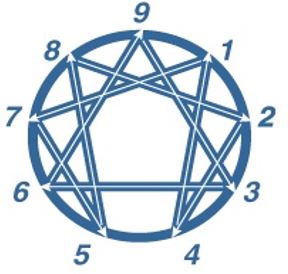My husband recently asked me to write something for him because, as he put it, “I’m not good at that.” The response that flew out of my mouth surprised me: “You don’t get better at it by not doing it!”
This is what I call a “divine duh” moment. It’s a thing that you may not have articulated, but when you hear it, you instantly know it’s true. So true, in fact, that it seems on the surface to be a “No duh!” statement – except that its implications are too profound to dismiss it as a truism.
As soon as the words came out, I thought of meditation (or, for our purposes, also called Centering Prayer). That’s because I know it’s a common complaint that people have regarding meditation: they just don’t feel like they’re any good at it. And because I was thinking of one particular friend who dislikes the practice because it feels like failure to her; it’s hard to measure progress, so it just feels like a waste of valuable time.
However, that’s just the personality talking. Did Yo-Yo Ma set his cello aspirations aside after hitting a few bad notes? Did Simone Biles give up gymnastics after her first few falls from a balance beam? Did Tiger Woods hang up his clubs after a few weeks of attempting the perfect swing?
No, or else we wouldn’t know their names. But this isn’t about fame; it’s about practice. These people really wanted something, and they were willing to be less than perfect to start. Or, in some cases, for a long time. They put in untold hours of practice.
The goal of meditation is not to be perfect at it. The goal is to create a quiet, still space that enables you to hear, feel, even see God. Sure, it’s frustrating to attempt this and get nothing but a head full of noise and distraction, particularly when your goal is deeper union with God. But that’s a worthy goal whose very attempt is success.
In other words, if you practice meditation and “fail” at it, you have succeeded. The attempt is success. Because stillness and quiet must be practiced; they are not natural behaviors for us. But they can be learned – not by avoiding them, but by practicing them.
So, the question to ask yourself is, “Am I willing to do something that I’m probably going to feel bad at in order to get better at it so that I can encounter God at a deeper level?” That’s a question only you can answer. I sure hope it’s “Yes.” God longs for you with a longing beyond words, and he is waiting in stillness for you.
Confused about how to start? Here’s what I do. I go to a place that’s quiet and has a door. I close that door and sit with a straight back. (This is so you can breathe easier.) I close my eyes and welcome the Holy Spirit. As thoughts come to me—and they will—I notice them and release them; I don’t start making the grocery list or rehearsing the conversation. Let those thoughts go and pay attention to the sound and feel of your breath. There’s nothing magical about breathing; it’s just that focusing on this helps you to stay focused on what’s happening right now rather than on grocery lists etc.
I also use an app from the Centering Prayer folks. It’s handy because you can set a timer—start with five minutes if you’re new to meditation—and you can choose from a wonderful array of chimes, from Gregorian chants to lutes to singing bowls! Anything to help this sometimes-hard practice, right? Do this every day. Yes, every day.
Please share your experiences, frustrations and breakthroughs regarding Centering Prayer. We all learn from each other.







